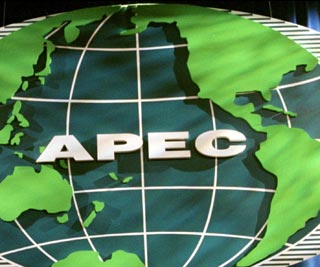Introduction
Since the mid 20th century, many have feared a global, environmental “Race to the Bottom” in which nation-states compete with one another by lowering their environmental regulations to attract industry to their jurisdictions. Hypothetically, the effect would be to create an advantage for producers in jurisdictions with strict regulations to relocate to the least-regulated environments. In effect, this would undermine the efforts of states who maintain high environmental standards, all while resulting in a lowering of global environmental standards.
In addition, a “Race to the Bottom” could also lead to states adopting strategies that undervalue the environment in favour of attracting industry. The creation of pollution havens would ultimately function analogously to tax havens: jurisdictions with less environmental standards could attract more foreign industry, investment, and capital at the expense of their environment.
In reality, however, there has not been a general trend towards environmental de-regulation, and producers have not conglomerated in the least environmentally regulated jurisdictions. This is because the “Race to the Bottom” hypothesis assumes that compliance with environmental standards will result in a comparative disadvantage for producers, and does not take into consideration the outweighing benefits of international cooperation and environmental regulatory harmonization.
Compliance with Regulations Does Not Necessarily Lead to a Comparative Disadvantage
One of the faulty assumptions underlying the “Race to the Bottom” hypothesis is that compliance with environmental standards will result in a comparative disadvantage for producers. Additionally, the hypothesis assumes that the costs of environmental compliance cannot be outweighed by other benefits offered by a jurisdiction, and that the costs of compliance are typically so severe, that they will lead firms to change their investment locations.
However, as noted by Katharina Holzinger and Thomas Sommerer in “Race to the Bottom or Race to Brussels? Environmental Competition in Europe,” national policymakers have typically tended towards a balanced approach to legislation that has not imposed high enough costs on producers to encourage re-location. Thus, unlike what “Race to the Bottom” hypothesizers might suggest, producers are rarely made to lose their competitive advantage due to strict environmental standards.
Also, states impose environmental regulatory regimes at varying strengths according to economic growth forecasts. That is to say that regulations are strengthened during periods of economic prosperity and weakened when economists forecast limited growth. For example, during periods of slow growth, regulations are weakened to protect producers when the costs of compliance would be most straining and when producers would be most motivated to relocate.
Benefits of Harmonization and Cooperation
“Race to the Bottom” hypothesizers also do not take into sufficient consideration the benefits of international harmonization and cooperation on environmental protection. The first benefit to consider is the combined management of environmentally degrading externalities caused by production. In a reality where jurisdictions compete with one another for the fewest number of regulations, the least regulated jurisdictions will also bear the brunt of the environmental degradation that comes with increased pollution. Instead, states may be inclined to cooperate on environmental regulations, to better distribute the environmental costs associated with production.
Second, there is an economic incentive to harmonizing environmental standards. If states cooperated to adopt similar environmental standards, states could make more efficient the processing and exchange of goods between jurisdictions that would otherwise need to be checked according to domestic standards.
Conclusion
The “Race to the Bottom” hypothesis regarding environmental protection has not borne itself out in part because states have recognized that the benefits of harmonization and cooperation outweigh the benefits of competing for the least regulated environment. Moreover, the “Race to the Bottom” hypothesis fails to take into consideration moderated regulatory regimes that maintain producers’ compliance without necessarily encouraging relocation.
Photo: Nesjavellir Power Plant by Gretar Ivarsson via Wikimedia Commons. Public Domain.
Disclaimer: Any views or opinions expressed in articles are solely those of the authors and do not necessarily represent the views of the NATO Association of Canada.




